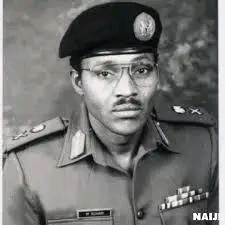Eye Reporters Editorial: The unprecedented declaration of a national holiday for Buhari’s burial, despite the absence of such honours for other past leaders, raises questions about political discretion, historical inconsistency, and the need for a codified national protocol for honouring former presidents.
The declaration of a national public holiday for the burial of former President Muhammadu Buhari marks a significant deviation from Nigeria’s long-standing tradition regarding how departed leaders are honoured. We at Eye Reporters find this gesture both unprecedented and revealing of how national honours can be wielded at the discretion of the sitting government.
Since independence, no former Head of State, military or civilian, has ever been accorded the honour of a national holiday for burial. Not Tafawa Balewa, Nigeria’s first and only Prime Minister, who was brutally murdered in the 1966 coup. Not Aguiyi Ironsi or Murtala Mohammed, both of whom died in office. Not Sani Abacha, whose sudden death as a sitting military leader rocked the nation in 1998. Even Dr. Nnamdi Azikiwe, Nigeria’s first President and one of its founding fathers, was buried without a national work-free day.
Most telling is the case of Shehu Shagari, the first executive president of Nigeria’s Second Republic. Despite his peaceful exit from power and statesmanlike status, his 2018 burial was not marked by a public holiday.
The only prior exception remains Umaru Musa Yar’Adua, for whom the Federal Government declared a one-day holiday upon his death in 2010. But as Eye Reporters notes, Yar’Adua died in office, and the holiday was seen as part of a broader national mourning, not a symbolic elevation of legacy.
It is in this context that we at Eye Reporters find the public holiday for Buhari’s burial highly curious. Buhari, a former military ruler and two-term civilian president, certainly occupies a significant place in Nigeria’s political history. But does that warrant an honour no other former leader has received?
Eye Reporters believes this move reflects less of a structured national policy and more of a discretionary, possibly politically motivated, gesture. It raises a critical question: are state honours becoming subject to the mood of the incumbent, rather than national consensus or established protocol?
This concern is amplified by the public’s response to Buhari’s death. Far from being unified in grief, many Nigerians took to social media to express anger, frustration, and disappointment over his leadership. The sentiment was clear: he came to power on the promise of restoring security, curbing corruption, and ending poverty, yet many feel he left the country worse off. Insecurity deepened, inflation soared, and the economic gap widened.
If public holiday declarations are to reflect national unity and honour, Eye Reporters wonders why figures like Azikiwe, Shagari, or even Murtala Mohammed were denied similar recognition. Were they less deserving, or is the decision ultimately about political optics, not historical weight?
We at Eye Reporters believe Nigeria needs clear and codified standards on how former leaders are honoured. National memory should not be molded by the personal sentiments of those in power. A republic thrives on institutions and precedent, not on favours or emotion.
Until such standards exist, gestures like this holiday will continue to be viewed not as tributes to national legacy, but as signals of political discretion.
© Eye Reporters Media Ltd 2025. All Rights Reserved. For submission and inquiry, contact: eyereportersmedia@gmail.com, editor@eyereporters.com, or 08052898434.


